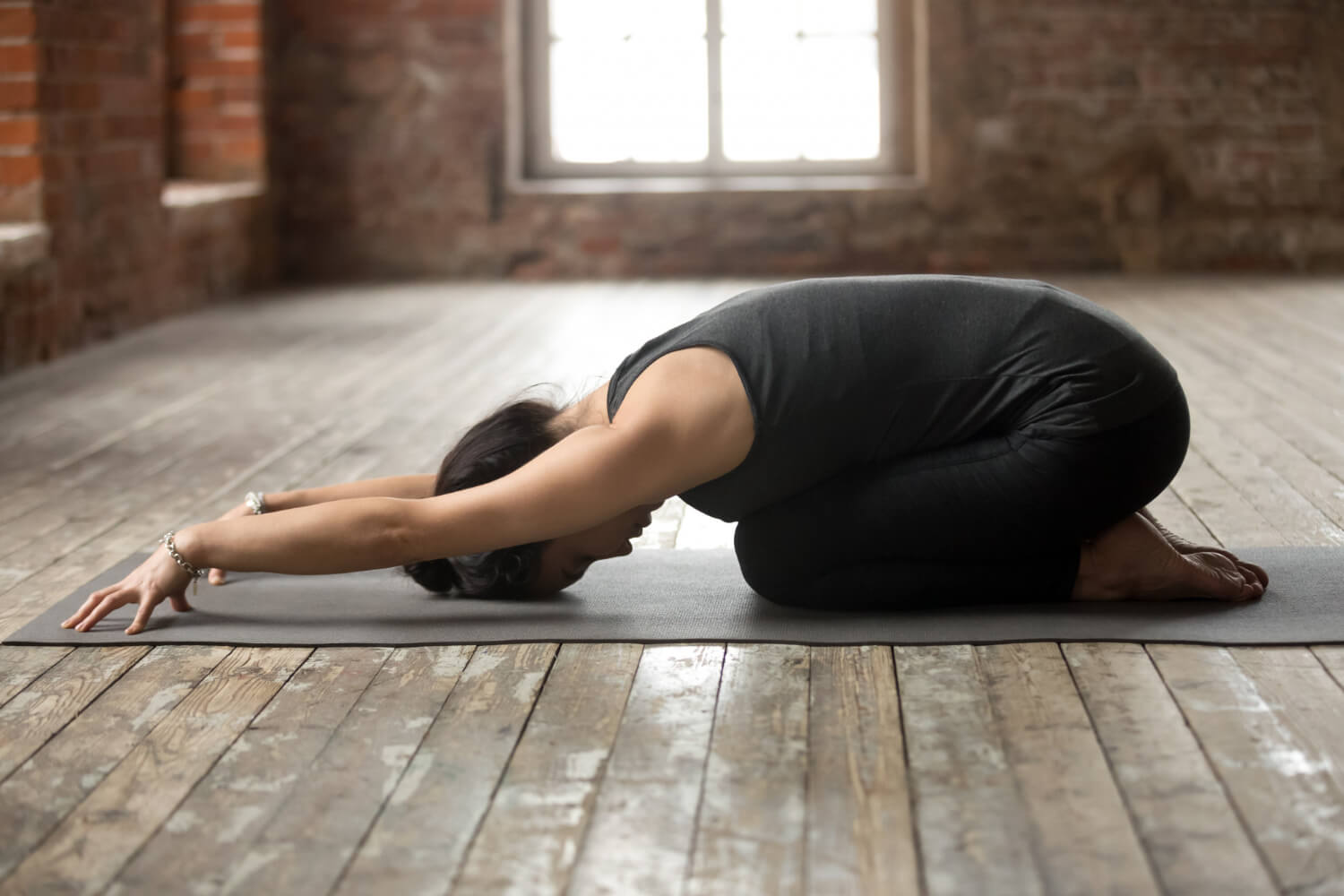
The name “Yoga” is derived from the Sanskrit word “Yuj,” which literally means ‘union’ – to come together and understand that we are all one. It marks its importance in postures, breath, and meditation as they help center and calm the mind. So, it is not hard to think that yoga for mental health is a highly supportive tool.
Despite the fact that yoga was established around five thousand years ago, it is still not well understood. Most people have heard about it, but not everyone knows its significance and principles.
Although yoga is widely known for its physical and mental benefits, it also has spiritual and philosophical roots in helping human beings discover their true nature.
It helps build harmony between the mind and body so that we can pay attention to our daily life and the relationship that each one of us has with the other and with nature.
Yoga and Mental Health
As mentioned earlier, yoga practically involves everything – from the body to your mind. That means it also deals with your daily activities with all its emotions and reactions. We, human beings, have divided health into two dimensions – physical and mental. But they aren’t two different things, are they?
Your mental health mostly depends on your physical projection of the world. How you perceive, eat, behave, talk, and other factors hugely impact your psychological field. For instance, hitting someone out of your anger, hatred, or any emotion will not promote inward peace; instead, it will eat you up from the inside.
On the other hand, yoga seems to have immense positive impacts on your physical and mental health by combining the two with breathing and mindfulness techniques. It is a total package that helps us physically, and the boosted cognitive abilities that happen over time are a bonus.
Mental Health Benefits of Yoga
Yoga, as a practice, offers numerous benefits to one’s physical as well as psychological health. In general, the psychological aspect of life holds far more significance than just being physically healthy. (1)
A person can eat healthily, practice certain yoga poses, and exercise to promote physical well-being. Doing these also provides limited mental benefits, such as calming the mind, easing stress, etc. However, to bring about a sense of wholeness, compassion and love require you to be aware, observe, and constantly learn throughout life.
Importantly, the spiritual and moral aspects of yoga didn’t fully reach the West, maybe because the Western mind appreciated materialistic wealth as a fundamental way of living. What had reached was a highly disciplined system of physical exercise that helped them physically and mentally to a certain extent to use their time more productively.
Practicing yoga, particularly asanas and pranayama, can benefit your mental health significantly:
1) Eases stress and anxiety
Doing yoga poses with the proper structure improves your body’s flexibility. They also help alleviate pain by releasing physical blockages like muscle knots, tension, and emotions.
Pranayama (breathing exercise) is highly effective in overcoming anxiety, as there is a relationship between anxiety and breathing patterns. A day of practicing pranayama won’t help much with your chronic anxiousness, but a consistent daily practice with awareness can undoubtedly improve your breathing and, in turn, ease anxiety. (2)
2) Promotes relaxation and emotional strength
Verbal communication and language do help in dealing with emotional distress, but body-based techniques like yoga have a vital role to play too. The chronic fight or flight response creates long-term stress in the body in the form of muscle tension and stiffness. (3)
Yoga poses and other breathing techniques are great relaxation tools. At the same time, when meditation is added to this, your emotional health will highly become independent and less prone to outward circumstances.
3) Increased creativity and intuition
As your muscles get stronger each time you lift weights, in the same way, your brain cells develop new and fresh connections that positively change the structure of your brain. (4)
A section of the brain that holds memory and learning improves greatly and also strengthens the one which plays an essential role in attention, awareness, and thinking.
Yogic Ways To Improve Psychological Health
In this section, we will be discussing some of the best and most effective yoga postures and other yogic methods to boost the quality of your well-being.
Since yoga asanas are well-known for improving flexibility, strength, and longevity, they are also beneficial for your psychological health.
Effective Yoga Asanas For Mental Health:
1) Legs up the wall (Viparita karani)

This yoga pose is popularly known for alleviating anxiety. It is an easy and effective pose to calm the mind and promote deep relaxation. Along with this, it also relieves legs, feet, and back cramps.
Steps:
1) Sit on the floor mat in front of a wall.
2) Lower your entire body to the floor sideways.
3) Roll on your back. Lift and stretch your legs against the wall with your feet at a comfortable distance from each other.
4) Place your arms comfortably alongside your torso and relax your whole body. Lose all the tension with no effort.
5) To end this pose, bend your knees and roll to one of your sides. Remain there while breathing normally and slowly push yourself to a seated position.
2) Standard forward bending pose (Uttanasana)

Uttanasana is an intermediate pose that is quite intense as it stretches your entire back muscles for good posture, strength, and flexibility. It also relieves back and neck stiffness.
In this pose, the head is positioned below the heart, thereby increasing oxygen flow to the brain. This helps ease mild depression, anxiety, and insomnia.
3) Child's Pose (Balasana)

This is another simple and relaxing pose that distresses your mind and the body by putting you into a state of calmness. It helps eliminate racing thoughts and release tension from your chest, hips, and legs.
Most people prefer to do this pose before a night’s sleep as it relaxes the spine and back and alleviates tension from your hands and shoulders. It also treats insomnia to a great extent.
4) Corse pose (Shavasana)

This pose is basically done at the end of a yoga session. It is not just a resting position but holds far more significance than we could actually think. It calms the mind by reducing stress, headache, fatigue, and anxiety.
It also calms the nervous system and improves the digestive and immune functions of the body. This pose is excellent for meditation and boosting overall health.
Steps:
1) Lie down on your back and separate your legs (a bit more than hip-distance).
2) Place your arms alongside your body, but ensure they don’t touch your torso.
3) Ease into the ground without any effort.
4) Close your eyes and let breathing occur naturally.
Other practices involve pranayama as a dominant part of yoga for both physical and mental well-being. Click here to know the 3 best pranayama techniques and how to do them.
